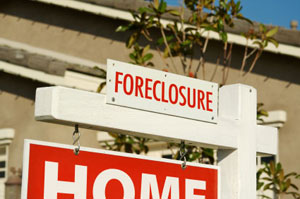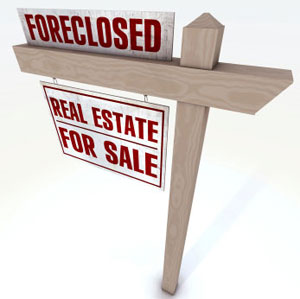Understanding Home Foreclosure
By Sari R. Updated on 7/21/2017 Foreclosure is the process by which a homeowners rights to a property are forfeited because of failure to pay the mortgage. If the owner cannot pay off the outstanding debt or sell it via short sale, the property then goes to a foreclosure auction.
Foreclosure is the process by which a homeowners rights to a property are forfeited because of failure to pay the mortgage. If the owner cannot pay off the outstanding debt or sell it via short sale, the property then goes to a foreclosure auction.
If the property does not sell at auction, it becomes the property of the lending institution.
How does foreclosure happen?
Technically, a foreclosure can occur any time you miss a mortgage payment. While a lender is not likely to foreclose unless the missed payments are repetitive, this would be the legal means that your lender can use to repossess your home.
When this happens, you are required to move out of your house. If your property is worth less than the total amount you owe on your mortgage loan, a deficiency judgment could be pursued. Both foreclosures and deficiency judgments can affect your ability to qualify for credit in the future. Basically, you should avoid foreclosure at all costs.
Foreclosure is a lengthy process, with specifics varying from state to state, but it all starts when a borrower fails to make timely mortgage payments. This is usually due to hardships such as unemployment, divorce, death or medical challenges.
Other times, a borrower may decide to stop paying the mortgage intentionally because the property might be underwater (mortgage exceeds the value of the home) or because hes tired of managing the property. For whatever reason, he can't or won't meet the terms of his loan.
How can I avoid foreclosure?
After three to six months of missed payments, the lender records a public notice with the County Recorders Office, indicating the borrower has defaulted on his mortgage. In some states, this is called a Notice of Default (NOD); in others, its a lis pendens -- Latin for suit pending.
In general, you should follow these three rules to minimize the risk of foreclosure:
- Contact your lender as soon as you know your payments will be late.
- Never ignore the lender's letters or phone calls. Ignoring the problem won't make it go away.
- Never assume your situation is hopeless
Here are some options if you find yourself getting closer to an inevitable foreclosure:
Loan Modification
If you can make your regular payment now, but cannot catch-up the past due amount, the lender might agree to modify your mortgage. One solution is to add the past due amount into your existing loan, and finance it over a long term.
Modification might also be possible if you no longer have the ability to make payments at the former level. The lender can modify your mortgage to extend the length of your loan (or take other steps to reduce your payments).
Short Sale
This will allow you to avoid foreclosure by selling your property for an amount less than the amount necessary to pay off your mortgage loan.
You may qualify if:
- The loan is at least 2 months delinquent;
- You are able to sell your house within 3 to 5 months; and
- A new appraisal (that your lender will obtain) shows that the value of your home meets program guidelines.
Deed in Lieu of Foreclosure
When the lender allows you to give-back your property--and forgives the debt. Although it does have a negative impact on your credit record, it is not as detrimental as foreclosure.
The lender might require that you attempt to sell the house for a specific time period before agreeing to this option, and it might not be possible if there are other liens against the home.
FHA Loan One-Time Payment
This option is only for those with FHA Loans. The lender might be able to help you receive a one-time payment from the FHA Insurance fund. Your loan must be at least 4 months but no more than 12 months past due and you must show you are able to begin making full mortgage payments.
- You must sign a promissory note which allows HUD to place a lien on your property for the amount received from the fund.
- The note is interest free, but must eventually be repaid.
- The note becomes due when you pay off the loan or when you sell the property.
VA Loan Financial Counseling
VA Regional Loan Centers offer financial counseling that's designed to help you avoid foreclosure. Call us to discuss options for your situation.

Didn't find the answer you wanted? Ask one of your own.

Contributing Authors
Related Articles
Ask our community a question.
Searching Today's Rates...

Featured Lenders
Lisa Stepp
RBS Citizens
Clifton Park, NY
Cameron Burke
Vision One Mortgage
Huntington Beach, CA
Kat Whitman
Whitman Met, Inc.
Sacramento, CA




